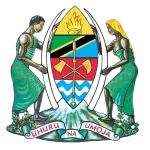FAQs
Common ASKED Questions
The Msimbazi Basin Development Project is a comprehensive initiative aimed at addressing the
persistent flooding issues in the Msimbazi River Basin, which affects Dar es Salaam, Tanzania’s
commercial capital. The project comprises five components, including infrastructure
development, preventative resettlement, strengthening institutions, project management, and
contingent emergency response. The project is scheduled to be implemented over five years,
from 2022 to 2027.
The Msimbazi Basin Development Project encompasses the construction of a new Jangwani
Bridge and is designed to bolster flood resilience and promote integrated urban development
within a flood-prone and economically significant region of Msimbazi. This project holds
significant importance for a variety of reasons, including:
- Watershed Environment Improvement: The project seeks to enhance and restore the
watershed environment in the area. - Flood Impact Mitigation: It aims to mitigate the adverse effects of flooding, thereby
safeguarding communities and their livelihoods. - Transportation Infrastructure Enhancement: The development includes improvements
to transportation infrastructure, benefiting the movement of goods and people. - Economic Well-being: The project ultimately contributes to the economic well-being of
affected households and the broader community. - Recreational Facilities: It will provide opportunities for recreation and leisure within the
basin. - In-Kind Compensation: Certain affected households will receive housing as part of their
compensation. - Terraces and Resting Gardens: The creation of terraces and resting gardens will add to
the aesthetic and functional value of the area. - Livelihood Restoration Program: The project includes a program to support various
livelihood activities, thus improving the economic prospects of the local population.
In summary, the Msimbazi Basin Development Project is a multifaceted initiative that aims to
address both environmental and socio-economic challenges, with a focus on enhancing the
overall quality of life for the affected communities at the project area.
The project is essential because the Msimbazi Basin has a long history of flooding, putting
approximately 300,000 people, primarily low-income households, at risk. These flooding issues
have intensified in the past decade due to climate change and human activities in the basin.
The project is financed by international organizations, including the World Bank's International
Development Association (IDA), which approved $200 million in financing in October 2022.
Additionally, the project is anticipated to benefit from $60 million worth of credit from the
Spanish Agency for International Development Cooperation and a grant from the Netherlands
Ministry of Foreign Affairs through Invest International.
The Msimbazi project in Tanzania is coordinated by the President’s Office – Regional
Administration and Local Government (PO-RALG). PO-RALG takes on the role of supervising the
day-to-day activities, which include tasks such as valuation and compensation, all in compliance
with national regulations and the guidelines set forth by the World Bank. To assist in overseeing
the project, PO-RALG collaborates with a Project Implementation Team (PIT) operating under
the Tanzania Rural and Urban Roads Agency (TARURA). Furthermore, at the municipal level, the
Ilala and Kinondoni Municipal Councils are entrusted with the responsibility of project
coordination.
Resettlement is a crucial component of the project aimed at relocating people living in the flood-
prone areas of the lower Jangwani basin to safer locations. This is necessary to protect the
affected communities from the risks of flooding, which has been a recurring problem in the area.
An estimated 6,356 households will be affected by the resettlement process. These households
include 3,780 homeowners and 2,576 tenants. The compensation process is a complex and
comprehensive undertaking, and its commencement is being carefully planned.
The resettlement compensation will consist of various elements, including housing materials,
construction, and service infrastructure; cash compensation; flat-rate land compensation; legal,
financial, and other related fees. Additionally, the compensation will involve livelihood
compensation, as many affected households rely on the central business district for their
income.
The compensation processes will be coordinated by PO-RALG and the Tanzania’s Chief Valuer.
The World Bank, as the financier, ensures that the resettlement policy aligns with the Bank’s
guidelines, and all households entitled to compensation receive a fair share.
You can stay updated on the project’s progress and developments by visiting the project’s official
website, subscribing to project email alerts, and following the project’s social media channels.
Regular updates will also be provided through the media. You can also contact your local
government leader for local information.
A dedicated Grievance Redress Mechanism (GRM) system and a toll-free number (+255 (22) 27-007-69) have been established for stakeholders to share their complaints. Additionally, you can
contact the project team through the provided contact details on the official project website.
We have established various channels to ensure transparency and facilitate information
dissemination. You can visit our dedicated project’s official website (www.msimbazibasin.tz) where you’ll find project details, updates, and contact information. Additionally, you can engage with us on
social media platforms such as Facebook, Twitter(X), and Instagram to stay updated on project
progress and news. For more specific inquiries, our team is readily available via direct communication channels provided on the website. We are committed to keeping the public
informed and engaged throughout the project’s lifecycle.
Yes, the project has established a feedback mechanism found on the website to allow
stakeholders to report their concerns or questions. This mechanism ensures that stakeholder
feedback is heard and addressed promptly.
All project activities adhere to legal and ethical standards. The project operates within the
framework of the World Bank’s Environmental and Social Framework (ESF) and Tanzania’s policy,
legal, and institutional framework to ensure sustainable development and safeguard the rights
of all stakeholders.
Infrastructure to be built under the project includes the construction of the 390m Jangwani
Bridge and Recreation Park. Additionally, 57 hectares of new land will be developed for urban
development.
- To strengthen the flood resilience of the lower Msimbazi Basin which costs lives and
property every rainy season. - Reduce interruptions to the traffic to and from the CBD
- To improve the Bus Rapid Transit (BRT) service that is faced with the challenge of flooding in
its infrastructure and Depot every rainy season and thus causing serious travel problems for
residents who use the service. - Support integrated urban development in an economically important and flood prone area
of the Msimbazi River Basin in Dar es Salaam.
Compensation is a payment given to a person or Institution to replace property taken for public
interest and assigned to other uses.
Anyone who legally owns property is entitled to compensation if that property is used for public
good.
The legally appointed Probate Administrator shall receive compensation from the estate.
Payment must be made within six months.
The compensation of the deceased will be paid to the Probate Administrator who was legally
appointed.
Both parties in a joint venture property should be listed in the compensation schedule and
compensated together.
Directors are appointed to approve or receive compensation on behalf of Trustees.
If you have any concerns or complaints related to the project, you can bring them to the
attention of the Street (Mtaa) Grievances Committee. They will work to resolve the issue. If you
are not satisfied with their decision, you can escalate the grievance to the Ward or District
Grievances Committee for further review.
Compensation will be paid after the dispute is resolved and confirmed by legal documents
The complaint is resolved within 14 days
Within 6 weeks.
If the customer is dissatisfied with the resolution provided, they have the opportunity to
escalate their complaint to the next level.
The Msimbazi Basin Development Project passes through the Ilala City Council and Kinondoni
Municipality. In Ilala City Council, the project passes through four Wards, namely Upanga
Magharibi, Jangwani, Kariakoo, and Mchikichini, as well as seven streets (Mitaa), including
Charambe, Mtambani A, Mtambani B, Kariakoo Kaskazini, Mission Kota, Ilala Kota, and Msimbazi
Bondeni.
Meanwhile, in Kinondoni Municipality, the project passes through four Wards, which are
Hananasif, Magomeni, Mzimuni, and Kigogo, and nine streets (Mitaa), including Mkunguni A,
Mkunguni B, Hananasif, Kawawa, Suna, Idrisa, Mtambani, Mwinyi Mkuu, and Kigogo Mbuyuni
- Toll-Free Number: +255 (22) 27-007-69
- Project Website: https://www.msimbazibasin.tz/
- Local Offices: LAPF Millenium Tower, 4th Floor, Kijitonyama, Alhasan Mwinyi Road.

